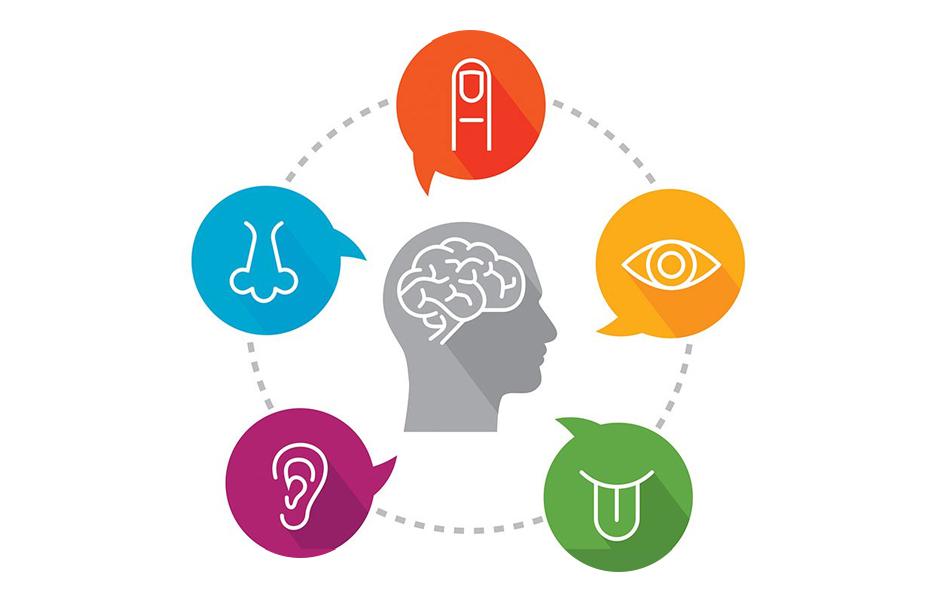
We are sensory beings. No matter which way you look at it, we need our sensory systems to make sense of ourselves and the world around us. So how does this differ to a person with complex needs? Well, it doesn’t. A person with complex needs still uses their sensory systems to make sense of their world. But it’s HOW they do it which might be different.
Each of us has 8 different senses which we use to register, process and respond to stimuli. Those senses are taste, touch, smell, sight, hearing, proprioception (body awareness of muscle and joint movements), vestibular (changes to balance and equilibrium) and interoception (awareness of internal sensations such as hunger and body temperature).1 Many of the children we see experience difficulties with their sensory processing as a secondary symptom(s) to their diagnosis.
Let’s look at some recent findings which give us insight into sensory processing within complex needs:
- Sensory processing difficulties manifest across all levels of intellectual developmental disabilities. Children with mild and severe intellectual disabilities experience the most sensory processing difficulties.2
- The somatosensory system (touch and body awareness) is impaired in neurodevelopmental disabilities. These impairments may be over- or under-sensitivity to touch or poor touch discrimination associated to motor deficits amongst others. These somatosensory difficulties are closely related to problems with social, communicative and motor development.3
- Children born prematurely show atypical sensory behaviours with auditory, tactile and vestibular processing most likely to be affected.4 In fact, 39% of all children born prematurely have atypical sensory needs.
- Children with cerebral palsy present with disorders of sensory processing compared to typically developing children.5
So, we know through the research that children with complex needs have sensory processing differences. As practitioners trained to support children with complex needs, it is our job to look at how a child can make sense of their sensory world alongside their medical diagnoses. We are the detectives who find out how they respond to different input and how they are communicating these responses to us. This isn’t always an easy job, especially for those children who are non-verbal. Therefore, it is important to complete a thorough assessment and for the therapist to get to know the child and their family. It’s also why we are so focused to set goals with the families we support – we need to work together as a team.
Once we know more about the child and their sensory needs, we can use this information to ensure a more regulated daily routine and productive therapy sessions. If we notice a child is more wriggly or whiney than usual, and we know that they are sensitive to bright light and loud sounds, we will adjust the therapy room by dimming the lights and removing toys which are too loud and bright. If we know a child becomes sleepy after the car ride to therapy, we might use some fast movement and upbeat songs to alert their senses for optimal attention and learning. This information should also be discussed with the family so they too can be sensory detectives to better understand their child’s sensory needs and therefore behaviours.
Sensory processing is just one piece of the puzzle. It is very important to consider all other areas of influence – physical and cognitive ability, social communication, the environment, behaviour management, general health and wellbeing.
If you have concerns about your child’s sensory needs, please get in touch with the team at High Hopes Dubai to book with one of our Occupational Therapists.
Sources:
- Sensory Integration Network (UK & Ireland). What is sensory integration? https://www.sensoryintegration.org.uk/What-is-SI. Accessed 21st February 2019.
- Engel-Yeger et al (2011). Sensory processing dysfunctions as expressed among children with different severities of intellectual developmental disabilities. Research in Developmental Disabilities. Volume 32, Issue 5. https://doi.org/10.1016/j.ridd.2011.03.005
- Cacsio, C.J. (2010). Somatosensory processing in neurodevelopmental disorders. Journal of Neurodevelopmental Disorders. Volume 2. https://doi.org/10.1007/s11689-010-9046-3
- Wickremasinghe et al. (2013). Children born prematurely have atypical sensory profiles. Journal of Perinatology Volume 33, pages 631–635. https://www.nature.com/articles/jp201312
- Pavao et al (2017). Sensory processing disorders in children with cerebral palsy. Infant Behavior and Development. Volume 46 pages 1-6. https://doi.org/10.1016/j.infbeh.2016.10.007





